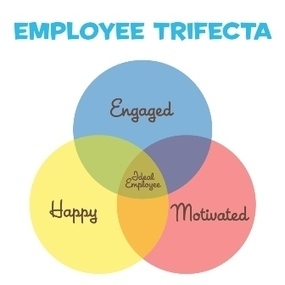The commodification of our lives and identities raises concerns about privacy, but it also illustrates two principles important to managers, as I noted in my last post: First, the increase in workplace distractions reduces worker productivity, and increases stress. Secondly, the commercialization of the internet also illustrates another, and perhaps more significant principle: the law of unintended consequences.
As managers, we face all kinds of problems: Bickering employees, workplace bullying, falling morale, static salaries, dysfunctional bosses, declining budgets. Most of us have developed a bucketful of tactics and strategies to address them, for example, using intrinsic rewards, like workplace recognition programs and “employee of the month” awards. We may have good procedures for review, evaluation and discipline, as well as specific programs to thwart bullying or harassment. Most of us learn to “manage up” to work well with supervisors, although if a boss is truly toxic we may have to leave.
So what does this have to do with the development of the internet? First conceived as an academic and government tool to share research and to communicate easily across time and space, the internet has devolved into a place where, while those initial goals have been superbly met, it has also become a venue for the exploitation of its users, through the commodification of the preferences and experiences of millions of people. Those shoes you looked at on Zappos suddenly appear as an ad on your Facebook page. Check out a picture on the web of your sister’s new car, and all of a sudden you are trailed across the internet by a plethora of Hondas and Chryslers. The Law of Unintended Consequences is at work here!
Those early attempts to develop the internet were not initially seen as commercial endeavors (I remember when there were no ads anywhere!) but the internet just grew, without a coherent plan or purpose other than linking as many people as possible. Consequently, individuals who could see profit potential in a particular area began to shape its future, piece by piece, and I would argue, without a long term vision of its taxpayer-funded purpose for the common good.
So is it true for managers. The best intentions to resolve problems in the workplace will be confronted by the Law of Unintended Consequences. A typical example is the troublesome employee: a lawyer who is rude to paralegal staff, a professor who intimidates average students, an admin who is chronically late, a physician who refuses to take certain kinds of difficult cases. What is the usual consequence? High turnover among the paralegals, small classes for the professor, angry customers whose phone calls aren’t answered, an overload of patients for the other docs in the group. So you try multiple remedies: The admin is disciplined, and ultimately fired. You end up hiring more paralegals.
But there are few disciplinary remedies for the lawyer, the physician, and the professor. In your willingness to meet another professional halfway, you might arrange honors classes for the professor so he is not dealing with “average” students, a new paralegal for the lawyer, and a lighter case load for the physician, in order to mitigate the negative consequences for the office, the college, and the hospital. In trying to solve the problem, you have unintentionally rewarded the bad behavior.
The key to a good strategy in this situation is to remember that everyone is watching. They can see that bad behavior has been rewarded. Morale plummets for all of those who are better behaved, and more professional, and are probably more competent than their troublesome peers.
So, the moral of this story is this: When dealing with difficult people at work, how will my actions affect the overall common good for other employees, customers, students, patients, or clients? Will my “solution” be seen by others as a reward for bad behavior? Will others start acting out so that they get preferential treatment too? Will your decision appear to be an example of “punishing the good, while rewarding the wicked?”

Recent Comments